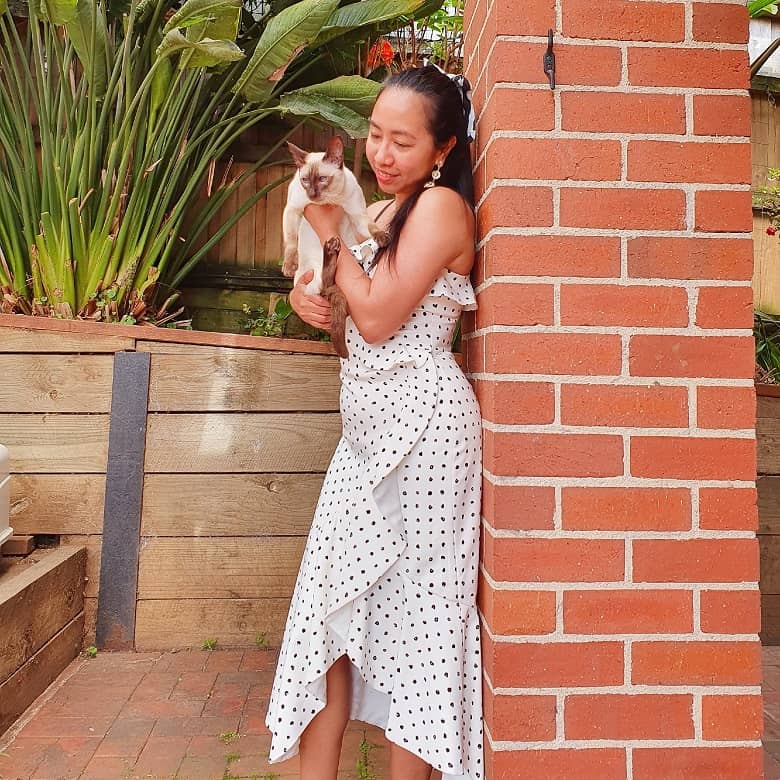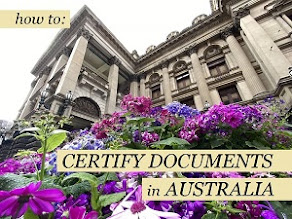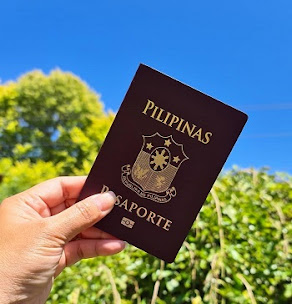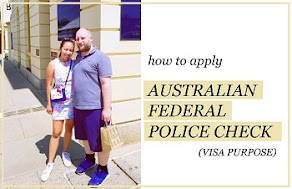Two days before Christmas Day in 2019, we are busy preparing for the coming of a new baby. My husband drove for hours from Warragul all the way to Ballarat to meet our precious furry Siamese baby, which we named Smokey.
She is our family’s constant joy! This little one is a blessing in disguise which helps us a lot during our long months of isolation. And as her human parents, we are profoundly grateful that she came into our life.
She might have some occasional naughty side, but overall, she is an adorable, obedient, and loving cat. I trained her well, Asian style (*wink, wink).
But despite all that cuteness and loads of cat photos on both of our phones, owning a cat takes responsibility.
It is not enough that your fur baby has adequate food and nice warm shelter.
Here in Australia, they take cat ownership very seriously, and if a human parent violates the legal requirements, this will lead to huge fines, jail time, or banned from owning cats or any other animals.
Domestic Animals Act for Victoria
The Prevention of Cruelty to Animals Act 1986 came into force on 20 May 1986 and is administered by the Department of Jobs, Precincts and Regions (DJPR). It has the purpose of protecting animals, encouraging the considerate treatment of animals, and improving the level of community awareness about the prevention of cruelty to animals. It establishes fundamental obligations relating to the care of animals in general terms. Details of obligations are found in codes of practice that are made under the provisions of the Act. These set out minimum standards and recommendations relating to important aspects of the care of animals. They are developed following a process of consultation with stakeholders and the community.
Codes reflect the views and values held by Victorians with respect to the care of animals. It is recommended that all those who care for animals become familiar with the relevant codes.
This code was initiated by the Bureau of Animal Welfare and prepared in consultation with an advisory committee. This committee was comprised of persons who have knowledge and expertise in particular areas such as animal welfare, veterinary science, the commercial use of animals, and the standards and conduct of the ethical use of animals.
Under the provisions of the Prevention of Cruelty to Animals Act 1986, the Code and its provisions are to be observed by owners, carers, and custodians of cats.
This Code of Practice is intended to provide the minimum standards of accommodation, management, and care appropriate to the physical and behavioral requirements of cats.
Legal responsibilities of Cat Owners
The Prevention of Cruelty to Animals Act 1986 sets out the offenses for failing to properly care and provide for your cat. This Act also covers offenses such as deliberate cruelty, ill-treatment, causing unnecessary or unreasonable pain or suffering, and abandonment.
The Domestic Animals Act 1994 sets out requirements such as registration, confinement, and identification of cats and the powers of local councils to ensure these requirements are met.
Minimum standards for Cat Ownership
Owners must provide their cats with proper and sufficient food, water, shelter, and veterinary treatment.
Cats must be treated humanely.
Owners must ensure that they abide by legislative requirements including — cats must be registered with, and identified as required by, the local council, cats must not be allowed to create a nuisance problem.
Found or stray cats in the possession of a person, other than the owner, must be handed over to the local council as soon as possible.
Cats must be microchipped where required by legislation.
Recommended best practice
All cats should be microchipped to ensure they are permanently identified. Owner contact details need to be kept up to date with the microchip registry.
Cats should be kept indoors at night (house, enclosure, shed, or garage) and preferably confined to the property at all times both for the cat's welfare, to prevent nuisance problems (for instance, trespassing or spraying on private property) occurring and to protect native wildlife.
How much it cost to own a cat?
Initially, we thought of adopting a cat. But after weighing some pros and cons including the consideration of the cat’s family history, we decided to go to the licensed cat breeder in Ballarat, where we got our dear Smokey.
It did cost a lot. We paid A$300 for her, and since she is fully vaccinated and already microchipped, then we save extra for that. After six months we met her veterinarian in town and scheduled for her desexed procedure, which hit us another A$500 including her medications.
When she was 14-months old she had another injury incident in the bathroom, which broke her one leg, and also broke my savings for spending another A$500 for her surgical procedure (medicines not included). Surprisingly, her food cost is so cheap! She eats raw chicken legs which cost A$3.00 per kilo, and 12-kilograms of chicken is good for three months' food supply. She still has cat pellet foods that she snacks throughout the day. We stopped feeding her typical cat foods when she reached 7-months coz it makes her breath stinks.
Being a responsible cat owner makes your cat also feel safe, and you and your cat become good neighbors too.
In Baw Baw Shire, Victoria where we are residing, the local council has specific guidelines on the registration and costs of owning a cat.
REGISTRATION
All cats over the age of 3 months are required to be registered with Council. It is a State Government requirement that they are microchipped in order to register with Council. Please note that microchipping is different from Council registration
REGISTRATION FEES:
Pet registrations may be transferred from another municipality (if they are in your name), free of charge, providing the animal is microchipped and proof of payment is provided.
Make ensure that your animal is wearing a registration tag at all times to assist in immediate identification and return.
If you require a replacement animal registration tag, one can be collected at a Customer Service Centre or posted to you.
NOTE: Cat registration is renewed annually and failure to comply will receive cat owner of A$330 fine.
How to Pay your Pet Registration
Your pet's microchip number, proof of desexing, and your pension card (if applicable) must be provided at the time of registration.
All applicable organization members must also provide proof of registration with the organization, for each animal being registered and for themselves.
Registrations can be paid using the following methods:
Online – visit Baw Baw Shire Council website and fill up the Animal Registration Form
Phone and Internet (Registration renewals only):
Phone 131 816, or go to the Postbill Pay website to pay now, or register to receive and pay your future bills on the internet. Credit card payment is not accepted over the phone.
By Mail (New registrations or renewals):
A cheque or money order made payable to Baw Baw Shire Council or, this Credit Card form can be posted to PO Box 304, Warragul 3820, along with the slip from your registration form. Make sure you keep the top portion of the renewal form for your records as no receipt will be issued.
In-Person (New registrations):
Present the registration notice with your payment at any Council Customer Service Centre to pay by cash, cheque, money order, credit card, or EFTPOS.
24 Hour Cat Curfew
Yes, you read it right. Apparently, cat curfew is a thing in Australia. Smokey enjoys her life indoors and in our small backyard.
Baw Baw Shire Council has an order imposed under the Community Local Law 2016, stating that all owners of cats are required to keep their cat securely confined to the property and not allow that cat to wander outside the owner’s premises.
Cats can live happy and healthier life when not allowed to roam. Restricting your cat to your home and yard protects them from harm from vehicles, other cats and dogs, and disease. It also protects our native Australian wildlife.
If your cat lives fully indoors, providing them with enrichment will keep them happy and stimulated. This can include scratching posts, toys, high areas to climb, and puzzle feeders.
If your cat is also an outdoor cat, they can be contained to your property with cat-proof fencing, that prevents them from jumping fences, or an outdoor cat run/enclosure.
Animal Cruelty is a criminal offense in Victoria
Animal cruelty is generally defined as an act or omission that contributes to an animal experiencing or being likely to experience, unreasonable or unnecessary pain or suffering. Animal Cruelty offenses in Victoria are largely governed by the Prevention of Cruelty to Animals Act (POCTA) which now incorporates several amendments enacted since 2015, reflecting an increasing level of community interest in protecting animal welfare.
The offense of animal cruelty is outlined in section 9(1) of the POCTA Act and is punishable by a fine of up to $40,297.50 or 12 months’ imprisonment (or a fine of up to $96,614 for a corporation).
The POCTA Act does not include a strict definition of animal cruelty but instead lists actions and behaviors that constitute cruelty. These broadly include:
* Deliberate cruelty (including wounding, mutilating, torturing, overriding, overdriving, abusing, beating worrying, tormenting, or terrifying an animal);
* Improper loading, crowding, or confining;
* Causing or endangering pain or suffering;
* Failing to provide proper and sufficient food, drink, or water;
* Failing to provide treatment (being the owner or person in charge of a sick or injured animal and unreasonably failing to provide veterinary or other appropriate treatment for the animal).
If you are reported in the council that you deliberately abandon a cat or dog, then you committed an animal cruelty offense with a maximum penalty of A$1,611.00
What if I can no longer take care of my cat?
In Victoria, there are appropriate guidelines to take if you can’t keep your cat due to some reasons.
In this case, you must find an appropriate new home for the cat. This could be with family or friends, or if you purchased the cat from a breeder, they may be willing to take your cat back.
The next best option is to surrender your cat to the local council, an animal shelter, or rescue organization. This decision should not be taken lightly. Staff at pounds and shelters do their best to rehome cats and do find homes for many of them. In cases where a home cannot be found, euthanasia may be the only option.
Dumping or abandonment of animals is an offense (under the Prevention of Cruelty to Animals Act 1986) and can lead to substantial fines and potential imprisonment. Dumped animals are likely to suffer starvation and disease, which can lead to death.
Report cases of abandoned cats or dogs to your local council or the RSPCA Victoria.
As a last resort only, if you cannot find a new home for your cat, it is kinder to have a vet euthanize your cat rather than dump or abandon your cat. If you are having an animal euthanized it must be done humanely. A vet is best placed to do this.
Cat parenting is a huge responsibility. Consider your options first before taking an innocent cat to your home.
Until next blog! Smokey needs my attention. Puuurrr.

































we should have the same cat and dog law here in the philippines. i wonder why is it too hard to do. ive had a couple of dog scares already that is why i have dog trauma, even my son has one. as for the cats who keeps on wandering they just keep on messing around the trashbins. ughhhhh
ReplyDeleteThe Philippines still have more other priorities at hand to make this kind of law national. However, this law can easily start having in a provinces, and have strict implementation, and continuously educate community the importance of having a concrete animal welfare law.
DeleteI will soon blog about Australia's animal welfare program with regards to feral animals and why they need to control them, and the impact of it versus endangered animal species.
This post makes me smile. I am an animal lover, I feel so happy everytime I see post that encourages kindness towards animals. Great post:)
ReplyDeleteThanks dear! Do you have a similar animal welfare law in your community?
DeleteThat's good. I wish laws covering animals in the Philippines are implemented much stricter.
ReplyDeleteAll taxes and fines that our council collect from pet-owners goes to funding many pet-friendly projects. Our parks are pet-friendly, with free doggie-poo bags around, etc. It's a win-win!
DeleteWoah so much to know!! But it’s so nice that even cats have right there. Here in the philippines, we humans dont have any anymore haha. Jk. Will remember someof the tips when i get my cat someday hahahah
ReplyDeleteHahaha yeah, even wildlife animals that hit by accidents. Either we call the council, the animal welfare hotline, or the police to report it.
DeleteIt is nice na very responsible ang Cat parents dyan. Dito kasi satin walang ganyang law pag dating sa Cat. Gusto ko ung may chip sila for identification.
ReplyDeleteI agree and makes pet owners responsible citizens. Being a responsible pet owners also helps to promote the safety of the wild life animals surrounding the neighborhood example, birds that visits our grounds and nearby parks.
DeleteHello Blair!
ReplyDeleteFirst, congratulations on your new baby! She looks really adorable.
Got surprised how organized and comprehensive is the law for cat owners there. It may look really strict but after all, it looks after the welfare of cats and cat owners as well.
Aww, I just cant imagine euthanizing pets. But yeah, to each his own.
Thank you Danica!
DeleteIt is strict, and quite expensive but if you do love your pets, you'll do everything to protect and care for them just like family. And the law knows that, that's why they impose penalties.
It is necessary to euthanize them especially if no one wants them. They said it is the most compassionate you can do to the unwanted pets, that's why they still try many best to look for foster parents or adoption for them.
Never had a chance to be a cat parent but this was an interesting read!
ReplyDeletethanks for stopping by!
DeleteWow I didn't know cats could be this expensive. This gives me an idea that we lack some cat privilege here in the Philippines
ReplyDeleteYeah, and the Philippines still needs more improvements.
Delete